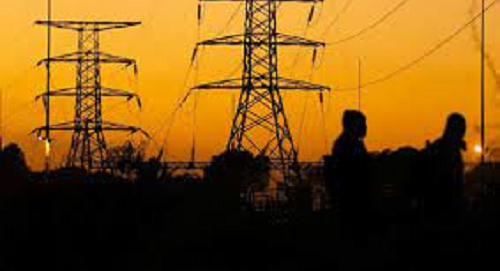DESPITE ongoing electricity shortages affecting millions of Nigerians, the Energy Commission of Nigeria (ECN) says supplying power to neighbouring countries such as Benin Republic remains a strategic and economic necessity.
In an interview with Channels Television, ECN Director-General, Mustafa Abdullahi, said only about 6% of Nigeria’s generated electricity goes to Benin Republic, largely from hydro dams located near the border.
“We’re not doing it to sell, but it is strategic. If we share rivers and waterways with a country, we must also share electricity out of goodwill.
“At one point, Benin Republic wanted to situate a dam close to ours, which would have caused serious disruption. Negotiating to share power was the better choice,” Abdullahi explained.
The DG revealed that around 60% of Nigerians currently have access to electricity, leaving about 85 million without power. The country’s generation capacity has grown from 4,000MW before 2023 to 6,000MW, but Abdullahi admitted this falls far short of the estimated 35,000MW needed for universal access.
He blamed frequent outages on poor infrastructure, especially ageing transmission lines, and the over-reliance on gas and hydro sources for generation.
According to him, 86% of Nigeria’s energy mix comes from gas, 12% from hydro, and only a fraction from renewable sources.
Abdullahi said the ECN is working to “solarise almost the entire country” and promote clean, locally produced power systems such as solar panels and batteries.
This, he said, would help phase out the controversial electricity band classifications (Band A, B, etc.) once renewable capacity is expanded.
“With renewable energy, you don’t need to think about Band A or Band B. You don’t need to switch on generators. We are giving you sustainability,” he said.
The passage of the 2023 Electricity Act, which allows states to generate and regulate their own power, was described by Abdullahi as a “big win.”
“However, he noted that progress at the state level has been slow due to capacity and funding challenges.
The ECN has conducted energy audits across the country, highlighting widespread inefficiency in energy use.
“We go to offices and see inefficient air conditioners and lighting. People don’t realise it’s cheaper to buy efficient gadgets. If we use our 6,000MW efficiently, we can serve more Nigerians,” he said.
On electric mobility, Abdullahi disclosed that the commission has stopped procuring petrol vehicles, opting instead for EVs as part of efforts to demonstrate their viability.
“If you have an EV, you don’t need to worry about petrol. Just come to our office, charge your car, and go. We want to show Nigerians it’s possible,” he said.
Abdullahi stressed that Nigeria’s energy future rests on diversifying sources, boosting renewable investment, and improving infrastructure.
He expressed optimism that with current policies in place, the country could achieve stable and sustainable electricity within the next five to six years.







